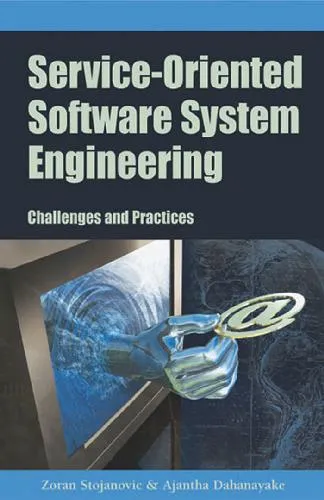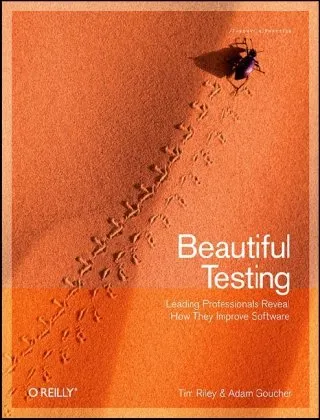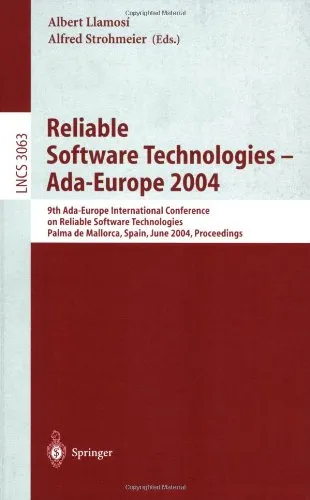Service-Oriented Software System Engineering Challenges and Practices
4.0
Reviews from our users

You Can Ask your questions from this book's AI after Login
Each download or ask from book AI costs 2 points. To earn more free points, please visit the Points Guide Page and complete some valuable actions.Related Refrences:
Introduction to "Service-Oriented Software System Engineering: Challenges and Practices"
Welcome to the comprehensive exploration of service-oriented software systems—a domain that is crucial in today’s rapidly evolving software development landscape. This book, co-authored by Zoran Stojanovic and Ajantha Dahanayake, provides a systematic guide to understanding, designing, and implementing service-oriented software systems, while addressing the unique challenges inherent in the approach. The contents of this book merge theoretical underpinnings with practical, real-world solutions, ensuring that both novice learners and experienced professionals find considerable value within its pages.
The service-oriented paradigm has reshaped how software systems are developed, enabling organizations to enhance flexibility, scalability, and reusability. However, transitioning to or fully implementing service-oriented architectures (SOA) presents both conceptual and operational challenges. This book delves deep into those challenges while providing actionable practices, methodologies, and tools to overcome them. From architectural design and governance to quality assurance and maintenance, it serves as a holistic resource for navigating the complexities of service-oriented systems engineering.
Detailed Summary of the Book
The book is meticulously organized into several interrelated topics, offering a seamless journey from understanding the basics of service-oriented architectures to implementing them effectively.
At its core, the book begins with an exploration of service-oriented principles and the motivation behind their emergence in software engineering. It highlights key concepts such as service composition, loose coupling, and reusability, demonstrating why SOA has become a foundation for modern scalable systems.
The authors then systematically introduce the different layers of the service-oriented architecture, offering guidance on how these layers interact to deliver cohesive, functional systems. Particular attention is given to the processes of service analysis and design, including crucial methodologies like Domain-Driven Design (DDD) and Model-Driven Architecture (MDA). The emphasis on practical frameworks allows readers to bridge the gap between theory and implementation.
One of the significant highlights of the book is its detailed treatment of the challenges in SOA, including security, interoperability, governance, and lifecycle management. Tactical solutions are presented for overcoming these obstacles, along with new perspectives on service-oriented system testing and quality assurance. Furthermore, the authors outline best practices for maintaining service systems in dynamic enterprise environments where requirements continuously evolve.
Finally, the book tackles emerging approaches like microservices and cloud-based service deployments, discussing their relationship to traditional SOA concepts—offering the readers insights into staying relevant amid changing technological trends.
Key Takeaways
- A comprehensive understanding of the service-oriented paradigm and its foundational principles.
- Practical strategies for designing scalable and reusable service-oriented systems.
- Insight into solving challenges like service governance, interoperability, and dynamic requirements.
- A clear contrast between SOA and emerging paradigms such as microservices and cloud architectures.
- Solutions for quality assurance and lifecycle management in service-oriented environments.
Famous Quotes from the Book
"A successful service is one that not only satisfies its immediate functionality but remains adaptable to yet unknown requirements of tomorrow."
"In a connected world, the value of software systems lies not in isolation but in their ability to interact, adapt, and evolve."
"The true power of service-oriented engineering lies in the balance between flexibility and control."
Why This Book Matters
As organizations increasingly adopt service-oriented approaches, the need for reliable resources to navigate this paradigm shift grows exponentially. "Service-Oriented Software System Engineering: Challenges and Practices" is more than just a guide; it is a toolkit for software engineers, architects, and IT professionals looking to excel in the design and implementation of service-based systems.
The book’s emphasis on both challenges and practices ensures it remains relevant across various industries and use cases. By addressing real-world concerns like system integration, lifecycle management, and evolving business requirements, this book equips readers with the confidence to solve complex problems effectively. Moreover, its focus on emerging technologies, such as microservices and cloud systems, ensures that the content remains forward-thinking and adaptable to the future of software engineering.
In conclusion, this book not only deepens your understanding of SOA but also empowers you with the tools and frameworks to implement service-oriented systems in rapidly changing environments. It is, without a doubt, a must-have resource for anyone wishing to excel in modern software development practices.
Free Direct Download
You Can Download this book after Login
Accessing books through legal platforms and public libraries not only supports the rights of authors and publishers but also contributes to the sustainability of reading culture. Before downloading, please take a moment to consider these options.
Find this book on other platforms:
WorldCat helps you find books in libraries worldwide.
See ratings, reviews, and discussions on Goodreads.
Find and buy rare or used books on AbeBooks.
1276
بازدید4.0
امتیاز0
نظر98%
رضایتReviews:
4.0
Based on 0 users review
Questions & Answers
Ask questions about this book or help others by answering
No questions yet. Be the first to ask!













